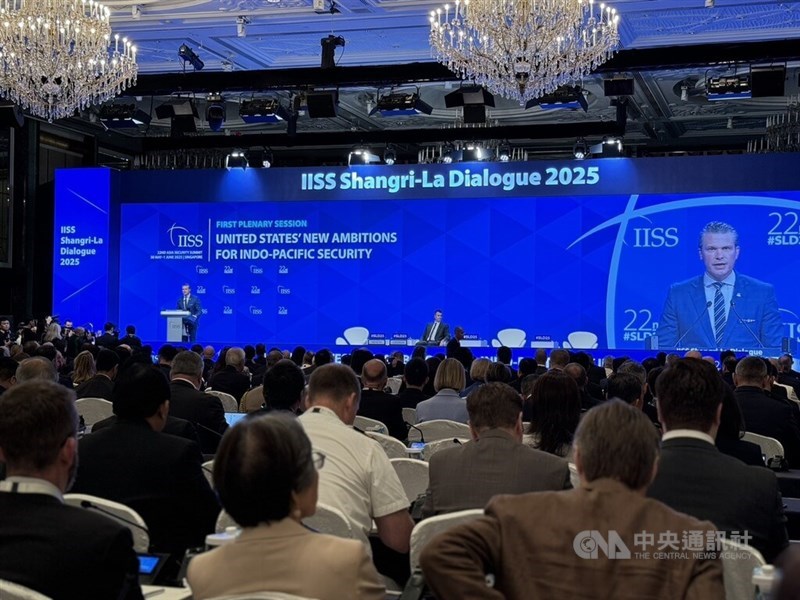
Singapore, May 31 (CNA) U.S. Defense Secretary Pete Hegseth warned on Saturday that any Chinese attempt to use force against Taiwan would have consequences far beyond the Indo-Pacific, calling for coordinated regional efforts to deter aggression and ensure stability.
"Every day, China's military harasses Taiwan. These activities have been paired with China's rapid military modernization and buildup," Hegseth said at the Shangri-La Dialogue security forum in Singapore.
"The threat China poses is real, and it could be imminent," he said, noting that "any attempt by Communist China to conquer Taiwan would result in devastating consequences for the Indo-Pacific and the world."
Some officials in Washington and Taipei have claimed that Chinese leader Xi Jinping (習近平) has instructed the People's Liberation Army to be ready to invade Taiwan by 2027 -- an assertion that Chinese officials have denied.
Beijing, which says it seeks "peaceful reunification" with Taiwan but refuses to rule out the use of force, has increased military and political pressure on the island since President Lai Ching-te (賴清德) of the Democratic Progressive Party took office in May 2024.
This includes multiple large-scale military drills around Taiwan and a ramping up of gray-zone activities -- coercive tactics that stop short of war or conflict.
Hegseth reaffirmed Washington's commitment to the Indo-Pacific, which he described as "America's priority theater," and called for greater cooperation with Japan, the Philippines and other partners in the region to maintain peace and enhance deterrence.
The U.S. is "reorienting toward deterring aggression by Communist China" through improving its forward force posture, rebuilding its defense industrial bases and helping allies and partners bolster their defense capabilities, he said.
While the U.S. does not seek conflict with China, it will not allow Beijing to "dominate and control" the Indo-Pacific, Hegseth said, calling out Beijing's buildup in the South China Sea and deployment of cyber capabilities to "steal industrial technology" and "attack critical infrastructure."
The Pentagon chief also urged U.S. partners to increase military spending, referencing the recent NATO pledge to spend 5 percent of GDP on defense.
He added that as Washington pivoted to the Indo-Pacific -- leaving Europe to take more responsibility for its own defense -- it also expects its Asian and Pacific partners to "upgrade" theirs and act as "force multipliers" alongside the U.S.
- Society
3 indicted for suspected fraud in egg procurement deals
08/28/2025 10:52 PM - Society
Taiwan to hold disaster response drills, test quake alerts in September
08/28/2025 09:36 PM - Business
Ground broken at TSMC Arizona industrial reclaimed water plant
08/28/2025 09:18 PM - Society
ER overcrowding top priority: Incoming health minister
08/28/2025 08:31 PM - Business
Taiwan's economy remains stable for 3rd straight month in July
08/28/2025 08:23 PM